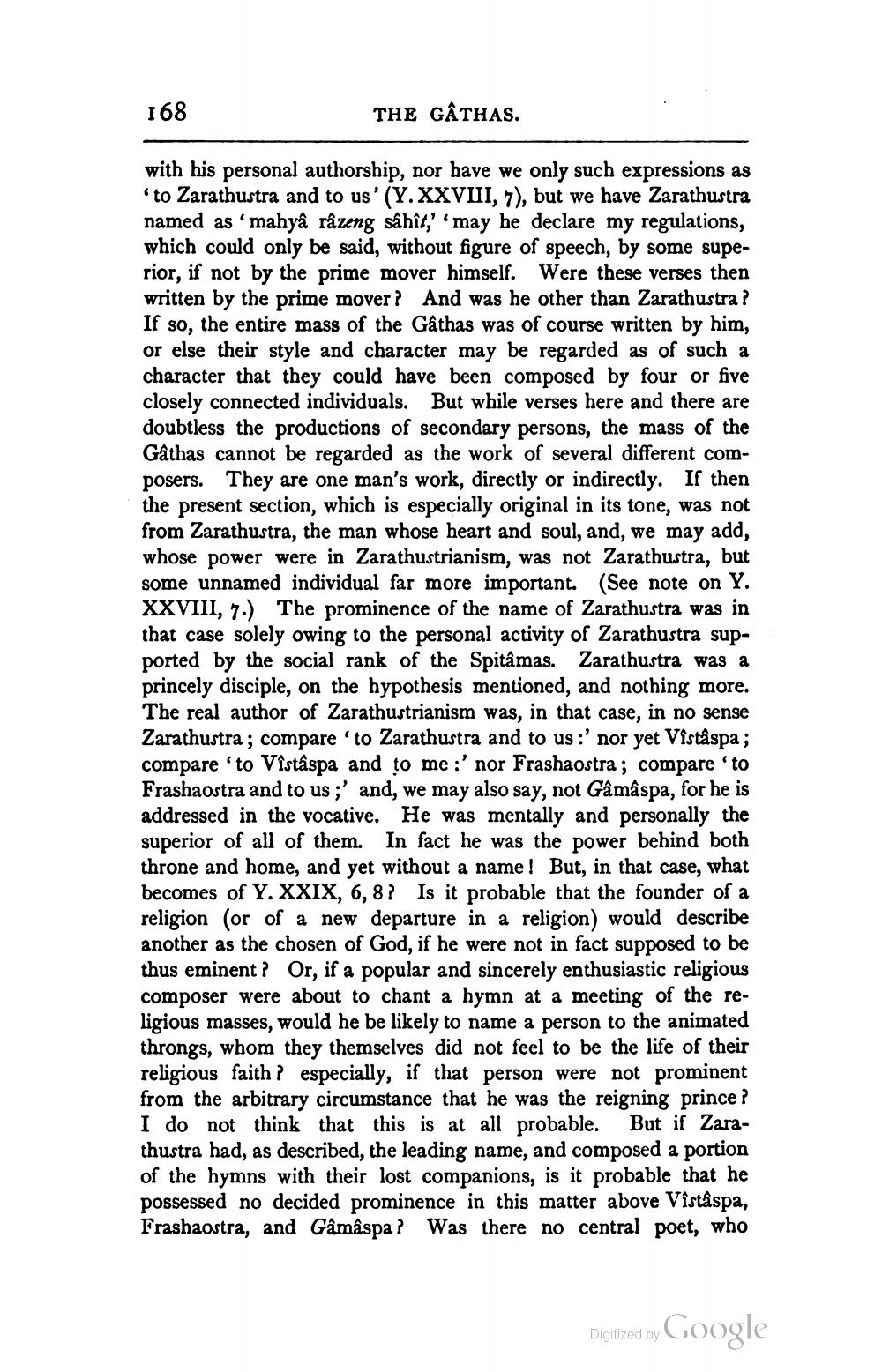________________
168
THE GÂTHAS.
with his personal authorship, nor have we only such expressions as
to Zarathustra and to us' (Y. XXVIII, 7), but we have Zarathustra named as 'mahyâ râzeng sâhît,''may be declare my regulations, which could only be said, without figure of speech, by some superior, if not by the prime mover himself. Were these verses then written by the prime mover? And was he other than Zarathustra ? If so, the entire mass of the Gathas was of course written by him, or else their style and character may be regarded as of such a character that they could have been composed by four or five closely connected individuals. But while verses here and there are doubtless the productions of secondary persons, the mass of the Gåthas cannot be regarded as the work of several different composers. They are one man's work, directly or indirectly. If then the present section, which is especially original in its tone, was not from Zarathustra, the man whose heart and soul, and, we may add, whose power were in Zarathustrianism, was not Zarathustra, but some unnamed individual far more important. (See note on Y. XXVIII, 7.) The prominence of the name of Zarathustra was in that case solely owing to the personal activity of Zarathustra supported by the social rank of the Spitâmas. Zarathustra was a princely disciple, on the hypothesis mentioned, and nothing more. The real author of Zarathustrianism was, in that case, in no sense Zarathustra; compare to Zarathustra and to us :' nor yet Viståspa; compare 'to Vîstâspa and to me :' nor Frashaostra; compare 'to Frashaostra and to us;' and, we may also say, not Gâmâspa, for he is addressed in the vocative. He was mentally and personally the superior of all of them. In fact he was the power behind both throne and home, and yet without a name! But, in that case, what becomes of Y. XXIX, 6, 8? Is it probable that the founder of a religion (or of a new departure in a religion) would describe another as the chosen of God, if he were not in fact supposed to be thus eminent ? Or, if a popular and sincerely enthusiastic religious composer were about to chant a hymn at a meeting of the religious masses, would he be likely to name a person to the animated throngs, whom they themselves did not feel to be the life of their religious faith? especially, if that person were not prominent from the arbitrary circumstance that he was the reigning prince? I do not think that this is at all probable. But if Zarathustra had, as described, the leading name, and composed a portion of the hymns with their lost companions, is it probable that he possessed no decided prominence in this matter above Vîstâspa, Frashaostra, and Gâmâspa ? Was there no central poet, who
Digitized by
Digitized by Google




